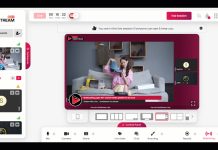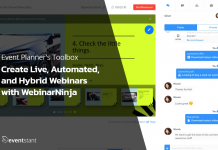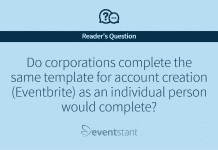
Negotiating a contract with a venue for your event is one of the most important parts of event planning. This is the step that decides everything, really. Each venue is unique; this is why each event needs to be tailored to suit the venue you sign the contract with. But, before you sign it you need to make sure you get what you want and not settle for less.
When I started out, I didn’t know much about contract negotiations. I learned on the fly; reading articles online. One key element I had on my side was my love of Dale Carnegie’s “How to win friends and influence people”. It is undeniably one of the best books on human interaction; it is a classic for a reason. If you don’t get much out of this article, just do me one small favor: read the book. It will help you not only in business, but your personal life as well. I’ve used what I’ve learned in Carnegie’s book in my communications with venue sales representatives. It paid off every single time!
In this article, I’d like to offer few tips that I’ve found to work like a charm when you are negotiating a contract. They are my techniques, they might not work for everyone but don’t be afraid to give them a try. My target audience is beginner event planners who don’t have much experience in contract negotiations. These are based on contract negotiations with hotels that offer meeting space.
1. Ask for a proposal without giving them your budget numbers.
Before you even start filling out Requests for Proposals (RFP), you need to know your budget and needs. If you plan to have your event at a hotel, you shouldn’t pay for the meeting space! There’s no reason to do so. Most, if not all, hotels offer free meeting space as long as you meet 2 of their requirements, which you can negotiate. These are Food & Beverage (B&F) minimum and minimum room pick-up. Once you meet these requirements meeting space becomes complimentary.
It is always easier to get sales department email address than to fill out long complicated RFP forms on hotel websites. Really hate doing that, I’d rather write a human email than punch in a few numbers. Be it an email or RFP form, don’t disclose your budget. They don’t need to know it. If they do, they’ll know what you can pay and will use it against you. In your first contact with sales representative, you need to figure out if they can accommodate your event during your required time. Usually you can get an idea from their meeting space charts – if they’re online – but when you talk to sales representative they know their meeting space and can tell you how many people they can “really” fit in there. So, in your first email introduce yourself, tell a bit about the event (how many people you expect, dates, what meals you want to serve, what your break-out rooms requirements are if any, and ask for a copy of their menu). This email is enough for them to generate generic proposal, what they really want to make on your event. Don’t even use the dollar sign in that email, not yet!
If your dates are flexible you can find out what dates they desire to fill and will offer better deal. Also, you need to figure out (if you haven’t) what meals you will offer your attendees during your event. This is also where you figure out how much you are willing to pay per attendee for those meals. For example, 3 meals (breakfast, lunch, and dinner) at $80 per attendee (don’t forget to mention if it’s before or after taxes.) If their menu prices are within your budget, lower it! If you add 3 meals from their menu and it is $74 – ask for $65. This is when they will consult chef to figure out if it’s feasible for them, but this also dictates your B&F minimum. Keep your B&F as low as possible, even if your projected numbers are 3 times as big as the minimum. This is in case something goes wrong and you don’t hit your target number of attendees, you’ll be covered. One thing to keep in mind, plated dinners are cheaper than buffet because it is a set portion of food.
2. Don’t be intimidated by strong sales pitch.
The email has arrived; they are available for your dates and outlined their proposal details. They might mention that someone else is looking for those dates, but only they know if it’s true. Don’t pay attention to those, that’s their sales pitch. In the beginning you might get intimidated by sales pitch, especially if you’re in person or on the phone. If you’re a shy individual, try to keep everything via emails. If you do talk on the phone, don’t make any promises – discuss. Also, depending on how they like to sell they might add deadlines to try to pressure you to take their deal. NO! You’re in charge. I had sales rep pressure me constantly with deadlines. It went on for 6 months, why? Because I didn’t want what the rep was offering. In the end I broke down through their sale pitch, wore them out, and they gave me exactly what I needed.
Here’s a short list of what they like to use to pressure you:
- Deadlines
- Another interested party for the same dates
- Their hotel status/rating (e.g. We are 5 star hotel, we can’t go lower.)
- Bad economy (e.g. We can’t afford to go lower.)
They’re always creative; these are 4 common ways they will try to force you to take the deal. The numbers you’ve received in your first email are your ceiling, now you have to figure out where the floor is so you can walk on it comfortably.
When you do site inspection don’t sign anything, this is for you to visit the location and then sleep on it for a few days. Sign it when you’re comfortable with it.
When you communicate with hotel rep, always be polite and professional. Don’t try to talk down to them as if you’re the God and they need to do everything for you. You need to be subtle in the way you influence their decisions through your communication with them. This is why I keep recommending Carnegie’s book.
Know your limits and try to understand their limits. You requests need to be reasonable and calculated. When you know what your comfort numbers are (e.g. $99 per night, $15k B&F minimum, and 70% room pick-up, and $100 per person catering) try to ask for something below it and work your way up, but not past your goals (e.g. $89 per night, $10k B&F minimum, and 60% room pick-up, and $90 per person catering).
Remember, key to successful negotiations is compromise. They give you something and you give them something, both happy. Sometimes it might be impossible to get something, so ask for something lower instead (good time to ask for complimentary stuff like rooms, free snacks, basic AV equipment, parking, internet, moving deadlines, etc.). Don’t force your needs upon them, let them think it was their idea to offer you that deal.
3. Don’t focus on one venue, get multiple proposals.
Just because you’ve found the perfect venue for your event doesn’t mean you need to stop there. You need to contact several different venues in the city or metropolitan area to get their proposals and see their numbers. For each venue negotiate, lower numbers as much as you can. This gives you leverage in negotiating with the venue you really want. If other venues offer you lower numbers, use it to your advantage. Competition among hotels is fierce, so they will always try to beat competition.
In one instance I was down to two hotels, one I liked better than the other. But the one I liked wanted higher room rate per night. The other hotel offered me their “last deal” which included lower room rate. I talked to sales rep from the hotel I liked and told her that I was offered lower room rate in the other hotel, which I liked because it would help drive more attendees by helping them spend less money. But, I mentioned that I really liked her hotel and would love to sign the contract if there was anything sales rep could do about the room rate (Don’t tell them you like their hotel more than the rest unless it’s at the end to push them over the edge, otherwise they will use it against you early in the game). As expected, I received an email from the rep telling me they will match the other hotel’s room rate if I sign with them. They got a deal! Keep in mind, by this time both hotels were offering me numbers way below my safe numbers. I was going to pick hotel I liked at that point because I already had what I wanted, but having a lower number from another hotel gave me leverage to lower it a bit more. You have to be comfortable about using one proposal against the other, don’t try to bully your way through it. Be friendly, courteous, and professional.
4. Use web to your advantage.
Internet should be your best friend when you are negotiating a contract with a venue. It offers you venue reviews. This is really a goldmine for event planners. Not only will they offer you positive reviews to see which venue you like better, but it will offer you nasty negative reviews to use when you negotiate a contract.
One thing to keep in mind, take negative reviews with a grain of salt. Sometimes they are lies, but mostly they are real people talking about real experiences. If you see some reviews that raise concern about service and premise, do address them with your sales rep. Of course, they will defend their venue and try to say something to make it better. Make sure you note what these reviews say and when you do site inspection do check them out. I’ve used some nasty reviews to help me lower numbers and during site inspection to find that hotel was pretty awesome and what I wanted. Negative reviews should be used to help you negotiate a contract, but your final decision and impression of the venue should be based on site inspection where you see the premise and interact with staff.
Some good websites with reviews include travbuddy.com and tripadvisor.com, these two should be more than enough to provide you with some reviews to help you negotiate.
These are 4 primary techniques I’ve used to negotiate contracts, all successfully. During contract negotiation for your event with the venue the most important part is communication. As mentioned earlier, be friendly and professional. Use proper English. You don’t want to appear unprofessional; they’ll use it against you in their sales pitch. If you appear professional and confident in your communication with the representative they will know they can’t mess with you.









![How Important Are Face to Face Meetings [INFOGRAPHIC]](https://eventstant.com/wp-content/uploads/faceToface_v11-sm-218x150.jpg)










Great advice, especially about being confident when you negotiate with hotels. It works! I always use tripadvisor but thanks for the tip on travelbuddy. I'll have to look into that site.
Thanks Barbara. I found that smile works very well when you're doing site inspection with hotel rep and meet hotel staff. Not only it shows confidence when people look at you, but also the act of having a smile gives you that extra boost of confidence. =) That way anything coming out of your mouth sounds pretty confident to the other party and they can't help but smile too. Creates friendly atmosphere.
[…] Check out contract negotiations article to get some tips on how to get lower room […]
[…] For hotel events, negotiate small reception at the front desk for VIPs. You can usually get it for free, if you know how to negotiate with the sales manager. […]
[…] building next to hotel) for the weekend of our convention for free. If you don’t know, you can negotiate free meeting space at the hotel if you meet two […]
[…] included at no cost. If you don’t think you’re a tough enough negotiator to get it, study up or get (paid) professional […]
Excellent article. I’m planning my first conference for my business and I was clueless about negotiating with hotels. Thanks for the good tips, I will keep them in mind.